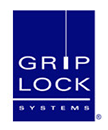Industry News
DOE Street Lighting Consortium Releases Results Of Public Street And Area Lighting Inventory Survey
October 20, 2014
DOE's Municipal Solid-State Street Lighting Consortium (MSSLC) has released the results of a voluntary web-based inventory survey of public street and area lighting across the U.S., conducted during the latter half of 2013 and intended to improve understanding of the role of public outdoor lighting in national energy use.
Results were based on the responses of about 240 organizations that included 148 municipalities, 14 counties, 34 state departments of transportation (DOTs), 17 investor-owned utilities, and 32 municipally owned utilities, encompassing small, medium, and large populations and service territories and operating about 11 million public street and area luminaires. The number of responses varied by question and sometimes even by sub-question.
Among the findings:
•62% of those responding indicated some use of LEDs, with 8% naming it as the most prominent technology in their system and 30% as the second most prominent.
•High-pressure sodium (HPS) was still the most widely used outdoor lighting technology by far, with 86% of those responding indicating some use of HPS and 82% naming it as the most prominent technology.
•36% of those responding indicated ongoing use of mercury vapor (MV) lights, which are much less efficient than HPS—showing that there's a substantial amount of energy remaining to be saved through their replacement with modern, higher-performance lighting.
•The average age of all of the luminaires was 15.3 years, with state DOTs reporting the highest average, at 17.6 years.
•The average reported annual costs per light were $96 in electricity and $72 in operations and maintenance.
The MSSLC plans a follow-up investigation to determine whether the reported data can be extrapolated to estimate the larger national inventory of public street and area lighting.









































